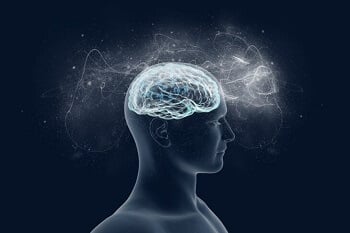The voices in the head that people with schizophrenia hear are often the butt of jokes, simply because imagining something like that is truly terrifying for many of us. However, it is very important to try to overcome this fear and understand what exactly is going on in the mind of patients in order to take one more step towards destigmatizing this and many other mental disorders.
One of the symptoms of schizophrenia (and not only it) is auditory hallucinations, and their spectrum is quite wide. Some patients hear only individual sounds: whistling, whispering, growling. Others talk about articulate speech and voices that address them with certain messages — including orders of various kinds. It happens that they incite the patient to something — for example, they order to harm themselves or others.
And there are thousands of evidence of such voices. Here is how the popularizer of science, biologist Alexander Panchin, describes this phenomenon in the popular science book “Protection from the Dark Arts”: “Patients with schizophrenia often see, hear and feel things that are not there. For example, the voices of ancestors, angels or demons. Therefore, some patients believe that they are being manipulated by the devil or the secret services.”
Of course, for those who have never experienced anything like this, it is difficult to believe in this kind of hallucination, but studies using functional magnetic resonance imaging (fMRI) confirm that many people really hear what others do not hear. What is going on in their brain?
It turns out that during hallucinatory episodes in schizophrenic patients, the same areas of the brain are activated as those of us who hear real noise. Several fMRI studies have shown increased activation in Broca’s area, the region of the brain responsible for speech production.
Why is the part of the brain that is responsible for the perception of speech activated, as if a person actually heard something?
Destigmatization of mental illness is a complex and incredibly important social process.
According to one theory, such hallucinations are associated with a deficiency in the structure of the brain — for example, with a weak connection between the frontal and temporal lobes. “Certain groups of neurons, those responsible for the creation and perception of speech, can begin to function autonomously, outside the control or influence of other brain systems,” writes Yale University psychiatrist Ralph Hoffman. “It’s like the string section of the orchestra suddenly decided to play their own music, ignoring everyone else.”
Healthy people who have never experienced anything like this often prefer to joke about hallucinations and delusions. Probably, this is our defensive reaction: to imagine that someone else’s monologue suddenly appears in the head, which cannot be interrupted by an effort of will, can be really scary.
That is why the destigmatization of mental illness is a complex and incredibly important social process. Cecilly McGaugh, an astrophysicist from the USA, gave a speech at the TED conference «I’m not a monster», talking about her illness and how a person with such a diagnosis lives.
In the world, work on the destigmatization of mental illness is carried out by very different specialists. It involves not only politicians, psychiatrists and social services. So, Rafael D. de S. Silva, associate professor of computer technology at the University of Southern California, and his colleagues proposed to fight the stigmatization of patients with schizophrenia using … augmented reality.
Healthy people (the experimental group included medical students) were asked to go through an augmented reality session. They were shown an audiovisual simulation of hallucinations in schizophrenia. When examining participant questionnaires, the researchers recorded a significant reduction in skepticism and greater empathy for the story of a schizophrenic patient that was told to them prior to the virtual experience.
Although the nature of schizophrenia is not completely clear, it is clear that the destigmatization of psychiatric patients is an extremely important social task. After all, if you are not ashamed to get sick, then you will not be ashamed to turn to doctors for help.










